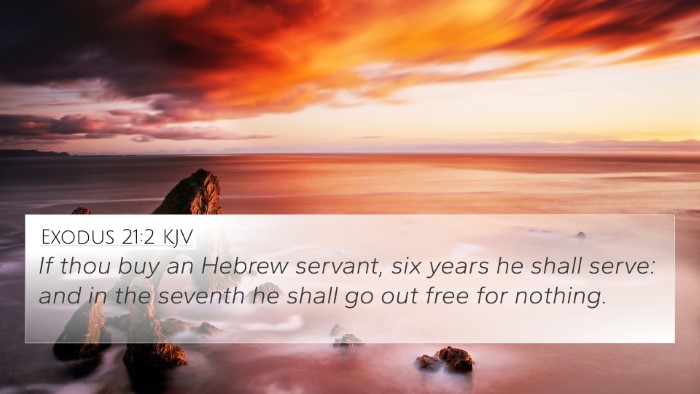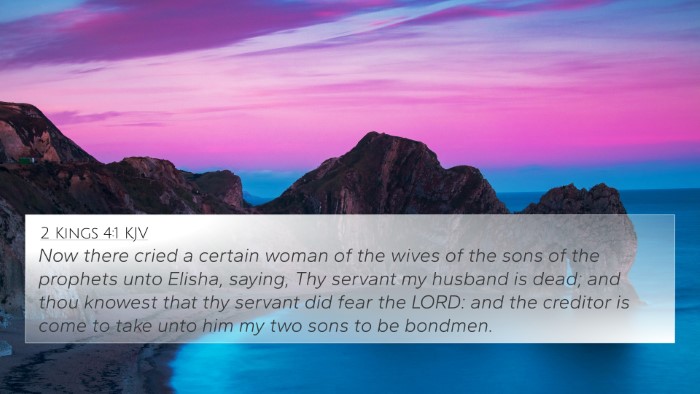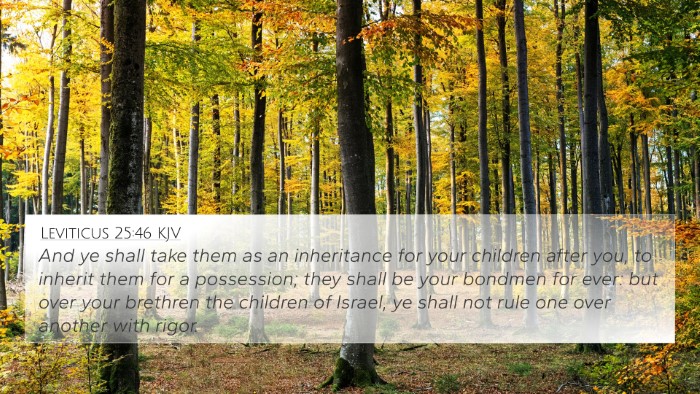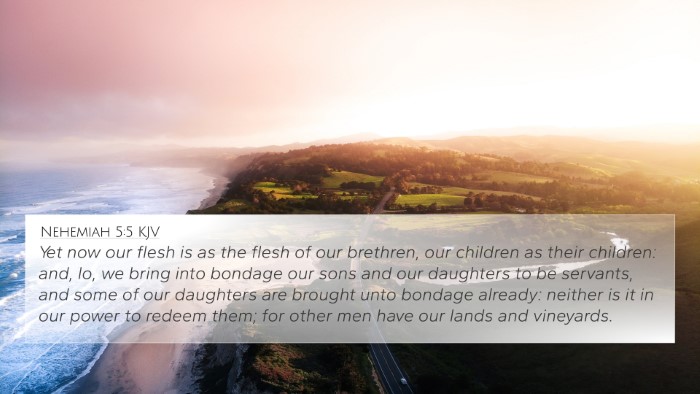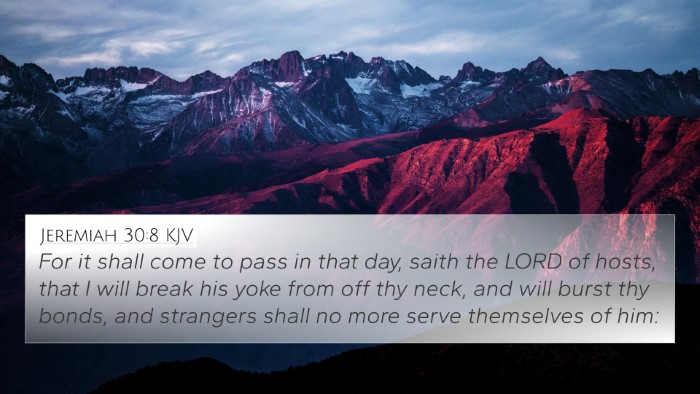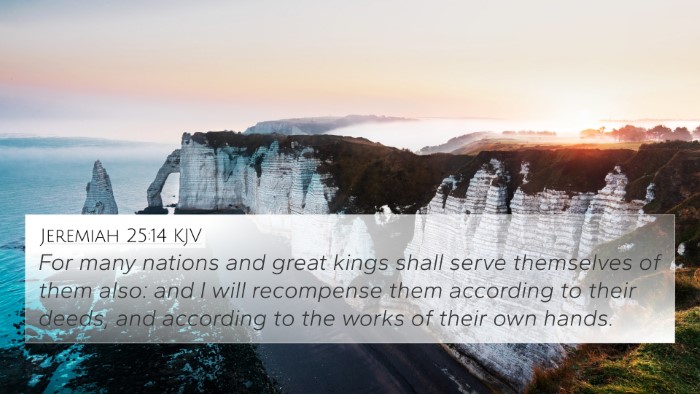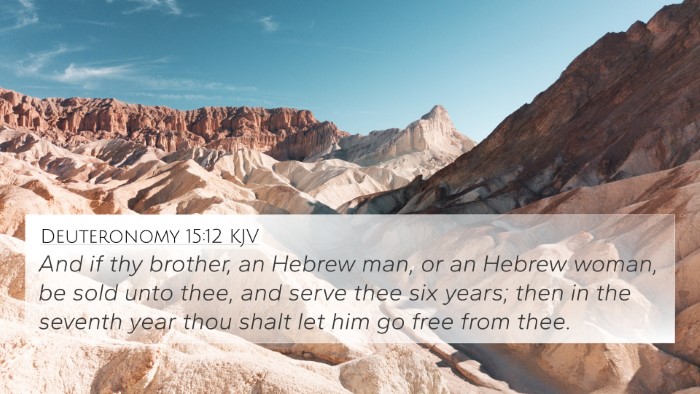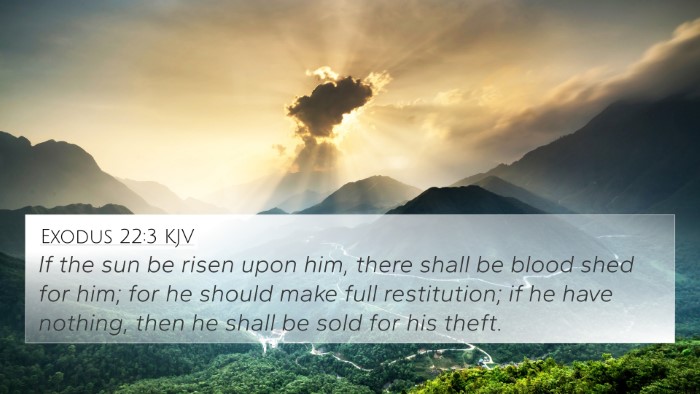Leviticus 25:39 states, "And if thy brother that dwelleth by thee be waxen poor, and be sold unto thee; thou shalt not compel him to serve as a bondservant:" This verse encapsulates profound principles concerning servitude, compassion, and the socio-economic responsibilities towards one another within the community of Israel.
Understanding Leviticus 25:39
In this scripture, the Lord addresses the treatment of fellow Israelites during times of hardship. The essence is not to treat one another harshly, but with empathy and fairness. The term "bondservant" brings to light the cultural and legal frameworks of servitude in ancient Israel.
Combined Insights from Public Domain Commentaries
- Matthew Henry: In his commentary, Henry emphasizes that this verse illustrates God's care for the poor and the integrity with which they ought to be treated. He suggests that servitude should be voluntary and rooted in love, mirroring the relationship between God and His people.
- Albert Barnes: Barnes posits that the legislation here is aimed at reducing the severity of servitude. He notes that it seeks to establish a form of compassionate treatment, suggesting that servitude should not diminish the dignity of the individual involved.
- Adam Clarke: Clarke elaborates that the economic realities of their time demanded a system of support through servitude, yet it should not infringe upon personal rights. He emphasizes the necessity for kindness and the humane aspect of financial difficulties.
Biblical Themes and Connections
Leviticus 25:39 can be linked to several themes and commands found throughout the Bible, especially those addressing social justice and ethical treatment of others. Here are notable cross-references that complement this passage:
- Exodus 21:2-6: Details about Hebrew servants, emphasizing their treatment and rights.
- Deuteronomy 15:12-15: Discusses the release of servants every seventh year and encourages remembering their past slavery in Egypt.
- Matthew 22:39: Jesus reiterates the command to love your neighbor as yourself, reinforcing the moral obligation to treat others with kindness.
- Luke 4:18-19: Aligns with the theme of liberating the oppressed, fulfilling the law's purpose of compassion.
- Galatians 5:13: Calls believers to serve one another in love, echoing the sentiment found in Leviticus.
- James 2:15-16: Addresses the need for action when witnessing a brother's distress, linking faith and practice.
- Romans 13:8: Advises believers to owe nothing, except love, creating an ethical framework for genuinely caring for others.
Comparative Biblical Analysis
Engaging in a comparative analysis of the Old and New Testament shows how foundational principles laid in Leviticus resonate through the teachings of Christ and the epistles. The call for communal responsibility is a consistent theme, bridging different contexts and covenantal understandings.
Cross-Referencing Methods
For those studying these connections, consider using various tools for Bible cross-referencing, such as a prominent Bible concordance or a cross-reference system provided in study Bibles. A cross-reference guide can illustrate how different verses collectively build upon shared themes, enhancing understanding.
Tools and Resources
- Bible Reference Resources: Utilize resources that provide insights into thematic connections across various books.
- Bible Chain References: Helps in tracking related verses for comprehensive study.
- Cross-Referencing Bible Study Methods: Formulate a systematic approach to correlate verses within your personal study routine.
Conclusion
Leviticus 25:39 instructs us on how to relate to one another, especially in times of need, and serves as a mirror reflecting God's intention for societal harmony. By recognizing the connections between Bible verses and linking Bible scriptures, we gain deeper insights into the overarching revolutionary nature of God's law regarding humanity.
As you delve into these Bible verse parallels, may your understanding of God's ethical standards grow, enriching not only your perspective on scripture but also your relationships with those around you.



